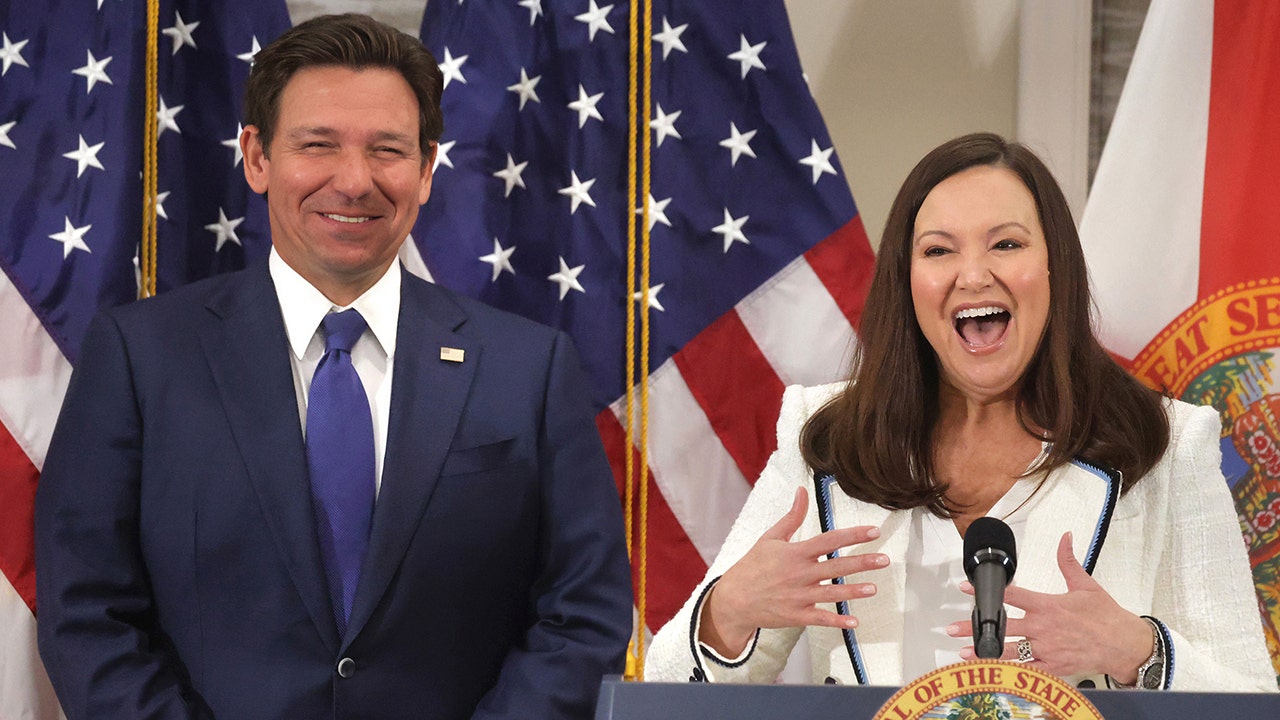CNN
—
Keri Williams wouldn’t have her business without TikTok. She launched The Branded Pinto, her custom hat shop, about two years ago after a video she shared of one of her creations “blew up” on TikTok. Nearly all of her business still comes from the platform.
But earlier this week, Montana Gov. Greg Gianforte signed a bill banning TikTok in the state. Now, Williams, who lives near Montana’s largest city — Billings — is scrambling to figure out the future of her business.
“I’ve been trying to get some of the people over to Instagram in case something horrible does happen, where people suddenly can’t get to my TikTok,” she told CNN, “but I’m not really sure how it’s all going to work.”
Over the past year, lawmakers in Washington have ratcheted up their scrutiny of TikTok, with a growing number of Congress members calling for a national ban of the short-form video app due to concerns about its ties to China through its parent company, ByteDance.
But with the bill signing this week, Montana became the first US state to impose a complete ban of the app — and almost immediately threw residents like Williams into a new era of uncertainty that could spread to other parts of the country if more states or the federal government take similar action.
The law, set to take effect in January, has already been the subject of a lawsuit by a group of TikTok users who allege it infringes on their First Amendment rights. Legal and technology experts have also raised questions about how the law can even be enforced. But some residents are still bracing for the fallout.
“It would definitely be a real kick in the face for me to, like, suddenly lose overnight,” Christian W. Poole, who calls himself the “Unofficial Ambassador for the State of Montana” on TikTok, told CNN about a ban going into effect.
Poole has amassed a following of more than 400,000 people who tune in for his mostly Montana-themed comedy videos. Poole said he makes “grocery” money off of TikTok, but he does it as “a fun hobby” and to make friends.
If he lost all of the friends that he made over the past four years, and all of the content that he spent much of his free time creating for fellow Montanans, “That would suck,” he said.
The push to take action against TikTok has been months, if not years, in the making. Criticism of TikTok ramped up last year after a BuzzFeed News report said some US user data had been repeatedly accessed from China, and cited one employee who alleged: “Everything is seen in China.”
TikTok later confirmed that some US user data can be accessed by some employees in China, but it has repeatedly denied that the Chinese government has asked for its user data.
TikTok, like other social media platforms, has also come under scrutiny in Washington for its potential negative impacts on young users as well as fears that its algorithms may lead users to potentially harmful subject matter, including posts related to suicide and eating disorders.
But the app’s audience appears to keep growing. TikTok said in March that it has 150 million monthly active users in the United States, up from 100 million users in 2020, when the Trump administration first threatened to ban the service.
TikTok has served as a lifeline for many to connect with others, and for businesses to reach customers. Some of these users in Montana are now frustrated with their local lawmakers.
“They just think China’s going to come and steal all of our information is what I got from everything,” Williams said after reading news of the ban. “But it’s some peoples’ actual livelihoods, and they’re just like willy-nillying it out there, with no plans and no way to enforce anything.”
“To me, I just kind of see a bunch of old men that have no idea what TikTok even is,” Williams said. “My main concern is that I just spent a bunch of money on all of my hat-making stuff, and now I’m gonna have, like, no customers.”
Taylor Reed, of Kalispell, Montana, similarly told CNN that he launched his home painting business, Reed Painting, during the pandemic with the help of TikTok. He said he taught himself how to use TikTok after reading about 60 books on marketing a small business.
“What we found is that TikTok gave us a way to be more competitive with less advertising dollars,” he said. “It really opened up a lot of doors for us in our company,” he added, including sponsorship deals with major companies such as Benjamin Moore.
While he is still skeptical that the law will actually end up going into effect, and thinks the concerns around data privacy that lawmakers cite are “not unique to TikTok,” Reed said the signing of it this week “was a good wake-up call to diversify onto other platforms.”
He said he hasn’t been able to find the same reach on other channels like Facebook’s Reels, and also struggles to edit videos without the features in TikTok’s app, so he will likely end up hiring an outside videographer.
For now, Reed said he will continue to use TikTok “for as long as we’re able.” But, he said, “we will definitely be pushing out onto other platforms. We’re not going to pigeonhole ourselves into just this one.”
























/cdn.vox-cdn.com/uploads/chorus_asset/file/25822586/STK169_ZUCKERBERG_MAGA_STKS491_CVIRGINIA_A.jpg)

/cdn.vox-cdn.com/uploads/chorus_asset/file/25821992/videoframe_720397.png)




/cdn.vox-cdn.com/uploads/chorus_asset/file/23935558/acastro_STK103__01.jpg)